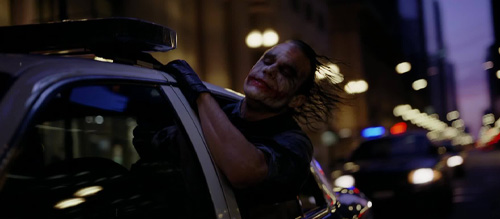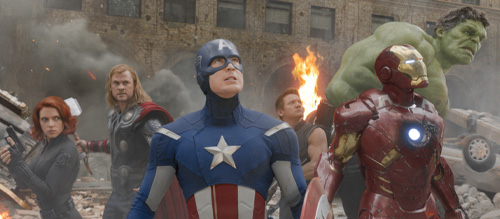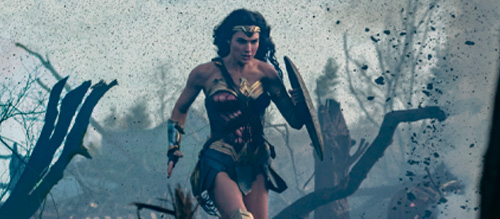10 Most Important Comic Book Movies Ever
6. The Dark Knight (2008)

10 Best The Dark Knight Moments
2008 was a good year for superhero cinema, and perhaps the most important in the sub-genre’s existence. Iron Man started the MCU, but it was The Dark Knight that opened space for new thought, more mature themes, and a director-led artistry to take hold of what was initially considered an exclusively commercial (and therefore less risk-taking and artistic) blockbuster landscape: the simple fact that this film has since been discussed as “a Christopher Nolan movie” proves that those in the arts and the media considered this to be more “art” than your typical blockbuster tentpole, Nolan’s efforts taking the Batman out of classrooms and into all new spheres of discussion.
The Dark Knight was the first comic book film adaptation to feature a winner of any major acting award at the Oscars, Heath Ledger’s Joker growing to be as iconic to 21st century cinema as Rocky Balboa was to the 70s, as John McClane was to the 80s, as Vincent Vega or The Narrator were to the 90s. Under the stewardship of Nolan and courtesy of the portrayal of Ledger, Joker became the most iconic villain in comic book movie history and importantly opened up the possibility for future antagonist explorations, such as those seen in Thor, Avengers: Infinity War (2018) and Joker (2019).
What Nolan achieved with this middle instalment in his Dark Knight Trilogy was previously unforeseen in the genre, his pushing of filmmaking boundaries (much of the film being shot in IMAX for example), and revolutionising of the relatively stale blockbuster landscape of the time, making this film not only as important socially and culturally as the rest on this list but among the most important from a filmmaking perspective too.
Recommended for you: Christopher Nolan Films Ranked
7. The Avengers (2012)

The Marvel Cinematic Universe’s first all-star team-up was childhood fantasy come to life. When people talk of Hollywood being the “dream factory”, offering things you can never experience in any other realm, this is what they mean… warts and all. After only a few monumental shifts in the cinematic experience over the previous twenty years, The Avengers was a big win for the security of the contemporary box office, a must-see cinema experience you could only ever have wished for in the decades that preceded it.
Perfecting the very best elements of the MCU formula (the jokes, the combination of powers, the moments of tension in the dialogue, plenty of memorable moments and longer-term pay-offs), The Avengers was a thrill-a-minute to those who engaged with it during its release period, a plethora of magical moments that made you wonder why no other studio had ever tried to do something like this before. It was a $1.5billion hit and the biggest name in tinsel town. Iron Man, Captain America, Thor, Black Widow, Hawkeye and The Incredible Hulk were the new Hollywood A-List. With a crash, a bang and a wallop, the days of actors selling movies were over and the era of characters selling movies had arrived. The Avengers, and particularly this appropriately titled 2012 film, changed Hollywood forever.
Franchise cinema has since become the norm – the Transformers universe hanging on via every pseudo-sequel, the DCEU’s continued (albeit fractured) appearances, the so-called Dark Universe that died with Tom Cruise’s The Mummy – and the reality is that despite all the franchises that had become cult series, box office hits or era-defining trilogies, it is The Avengers that made episodic storytelling the new standard for tentpole blockbuster releases.
8. Wonder Woman (2017)

Warner Bros’ Wonder Woman was the first $100million-plus movie to ever be directed by a woman, and is to this day the most lucrative woman-directed film of all time. Patty Jenkins, Gal Gadot and company proved with this 2017 release that women had perhaps always been superheroes too, blowing the blockbuster filmmaking sphere wide open as they took woman’s first steps into the No Woman’s Land of studio tentpole success.
The #MeToo movement that saw a number of incredibly powerful men from across cinema and a number of entertainment mediums finally get their comeuppance for years of abuse was founded in 2017, so the discussion surrounding gendered inequality in cinema had become more prevalent than ever in the months leading up to this woman-fronted blockbuster release. And, if the act of seeing women making expensive tentpole movies wasn’t revolutionary enough, the themes of sexism and overthrowing the patriarchy that the film so explicitly presented in a number of moments (including the now iconic No Man’s Land scene), plus the $821million it made at the box office, certainly proved that a changing of the guard was in full effect.
There had been woman-fronted superhero films before this – Catwoman and Elektra, though both notably directed by men – yet Wonder Woman hit just at the right time to represent the growing movements regarding gender equality, and did so with the kind of financial backing that proved sexism had existed in Hollywood from the beginning. It was on the pulse of a movement, and in doing so became representative of that movement, solidifying it as one of the most important comic book movies of all time: a revolutionary to the genre, but more importantly a revolutionary as regards blockbuster filmmaking and the industry’s wider financial distribution.

